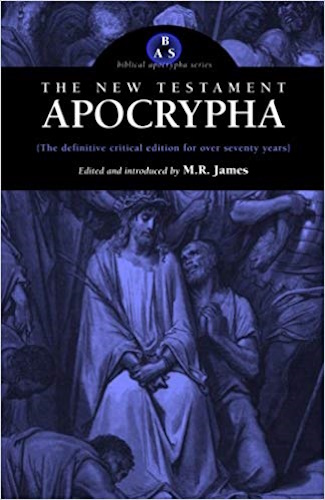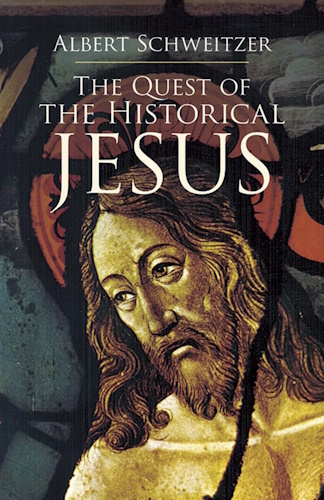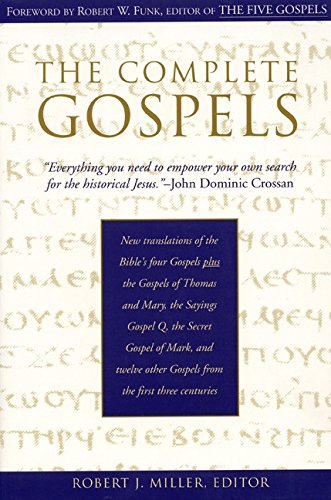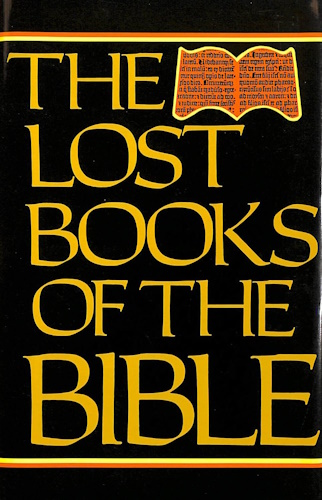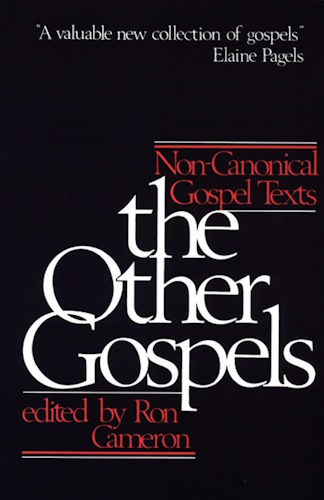
The Apostles' Creed
[It is affirmed by Ambrose, "that the twelve Apostles, as skilful artificers assembled together, and made a key by their common advice, that is, the Creed; by which the darkness of the devil is disclosed, that the light of Christ may appear." Others fable that every Apostle inserted an article, by which the creed is divided into twelve articles; and a sermon, fathered upon St. Austin, and quoted by the Lord Chancellor King, fabricates that each particular article was thus inserted by each particular Apostle:-]
| Peter | 1 | I believe in God the Father Almighty |
| John | 2 | Maker of heaven and earth |
| James | 3 | And in Jesus Christ his only Son, our Lord |
| Andrew | 4 | Who was conceived by the Holy Ghost; born of the Virgin Mary |
| Philip | 5 | Suffered under Pontius Pilate, was crucified, dead and buried |
| Thomas | 6 | He descended into hell, the third day he rose again from the dead |
| Bartholomew | 7 | He ascended into heaven; sitteth at the right hand of God the Father Almighty |
| Matthew | 8 | From thence he shall come to judge the quick and the dead |
| James, the son of Alpheus | 9 | I believe In the Holy Ghost, the holy Catholic Church |
| Simon Zelotes | 10 | The communion of saints, the forgiveness of sins |
| Jude, the brother of James | 11 | The resurrection of the body |
| Matthias | 12 | Life everlasting. Amen |
Archbishop Wake says: "With respect to the Apostles being the authors of this Creed, it is not my intention to enter on any particular examination of this matter, which has been so fully handled, not only by the late critics of the Church of Rome, Natalis Alexander, Du Pin, &c., but yet more especially by Archbishop Usher, Gerard Vossius,Suicer, Spanhemius, Tentzelius, and Sam.
Basnage, among the Protestants. It shall suffice to say, that as it is not likely, that had any such thing as this been done by the Apostles, St. Luke would have passed it by, without taking the least notice of it: so the diversity of Creeds in the ancient Church, and that not only in expression, but in some whole Articles too, sufficiently shows, that the Creed which we call by that name, was not composed by the twelve Apostles, much less in the same form in which it now is."
Mr. Justice Bailey says: "It is not to be understood that this Creed was framed by the Apostles, or indeed that it existed as a Creed in their time;" and after giving the Creed as it existed in the year 600, and which is here copied from his Common Prayer Book, he says, "how long this form had existed before the year 600 is not exactly known. The additions were probably made in opposition to particular heresies and errors.'
The most important "addition," since the year of Christ 600, is that which affirms, that Christ descended into hell. This has been proved not only to have been an invention after the Apostles' time, but even after the time of Eusebius. Bishop Pearson says, that the descent into hell was not in the ancient creeds or rules of faith. "It is not to be found in the rules of faith delivered by Irenaeus," by Origen, or by Tertullian.
It is not expressed in those creeds which were made by the councils as larger explications of the Apostles' Creed; not in the Nicene, or Constantinopolitan; not in those of Ephesus, or Chalcedon; not in those confessions made at Sardica, Antioch, Selucia, Sirmium, &c. It is not mentioned in several confessions of faith delivered by particular persons; not in that of Eusebius Caesariensis, presented to the council of Nice; not in that of Marcellus, bishop of Ancyra, delivered to Pope Julius; not in that of Arius and Euzoius, presented to Constantine; not in that of Acacius, bishop of Caesarea, delivered into the synod of Selucia; not in that of Eustathius, Theophilus, and Sylvanus, sent to Liberius; there is no mention of it in the creed of St. Basil; in the creed of Epiphanus, Gelasius, Damascus, Macarius, &c.
It is not in the creed expounded by St. Cyril, though some have produced that creed to prove it. It is not in the creed expounded by St. Augustine; not in that other, attributed to St. Augustine in another place; not in that expounded by Maximus Taurinensis; nor in that so often interpreted by Petrus Chrysologus; nor in that of the church of Antioch, delivered by Cassianus; neither is it to be seen in the MS. creeds set forth by the learned Archbishop of Armagh. It is affirmed by Ruffinus, that in his time it was neither in the Roman nor the Oriental Creeds."
As it stood An. Dom. 600. Copied from Mr. Justice Baileey's Edition of the book of Common Prayer. "Before the year 600, it was no more than this." -Mr. Justice Bailey.
| 1 | I Believe in God the Father Almighty |
| 2 | And in Jesus Christ his only begotten Son, our Lord |
| 3 | Who was born of the Holy Ghost and Virgin Mary |
| 4 | And was crucified under Pontius Pilate, and was buried |
| 5 | And the third day rose again from the dead |
| 6 | Ascended into heaven, sitteth on the right hand of the Father |
| 7 | Whence he shall come to judge the quick and the dead |
| 8 | And in the Holy Ghost |
| 9 | The Holy Church |
| 10 | The remission of sins |
| 11 | And the resurrection of the flesh |
As it stands in the book of Common Prayer of the United church of England and Ireland as by law established.
| 1 | I Believe in God the Father Almighty, maker of heaven and earth |
| 2 | And in Jesus Christ his only Son, our Lord |
| 3 | Who was conceived by the Holy Ghost, born of the Virgin Mary |
| 4 | Suffered under Pontius Pilate, was crucified, dead and buried |
| 5 | He descended into hell |
| 6 | The third day he rose again from the dead |
| 7 | He ascended into heaven, and sitteth on the right hand of God the Father Almighty |
| 8 | From thence he shall come to judge the quick and the dead |
| 9 | I believe in the Holy Ghost |
| 10 | The holy Catholic Church; the communion of saints |
| 11 | The forgiveness of sins |
| 12 | The resurrection of the body; and the life everlasting |
Amen.
![]()
![]()
-
Urantia Book, 44:0.11 - The Celestial Artisans
Never in your long ascendancy will you lose the power to recognize your associates of former existences. Always, as you ascend inward in the scale of life, will you retain the ability to recognize and fraternize with the fellow beings of your previous and lower levels of experience. Each new translation or resurrection will add one more group of spirit beings to your vision range without in the least depriving you of the ability to recognize your friends and fellows of former estates.
-
Princess Bride 1987 Wallace Shawn (Vizzini) and Mandy Patinkin (Inigo Montoya)
Vizzini: HE DIDN'T FALL? INCONCEIVABLE.
Inigo Montoya: You keep using that word. I do not think it means what you think it means. -
Urantia Book, 117:4.14 - The Finite God
And here is mystery: The more closely man approaches God through love, the greater the reality -- actuality -- of that man. The more man withdraws from God, the more nearly he approaches nonreality -- cessation of existence. When man consecrates his will to the doing of the Father's will, when man gives God all that he has, then does God make that man more than he is.
-
Urantia Book, 167:7.4 - The Talk About Angels
"And do you not remember that I said to you once before that, if you had your spiritual eyes anointed, you would then see the heavens opened and behold the angels of God ascending and descending? It is by the ministry of the angels that one world may be kept in touch with other worlds, for have I not repeatedly told you that I have other sheep not of this fold?"
-
Urantia Book, Foreword - 0:12.12 - The Trinities
But we know that there dwells within the human mind a fragment of God, and that there sojourns with the human soul the Spirit of Truth; and we further know that these spirit forces conspire to enable material man to grasp the reality of spiritual values and to comprehend the philosophy of universe meanings. But even more certainly we know that these spirits of the Divine Presence are able to assist man in the spiritual appropriation of all truth contributory to the enhancement of the ever-progressing reality of personal religious experience—God-consciousness.
-
Urantia Book, 1:4.3 - The Mystery Of God
When you are through down here, when your course has been run in temporary form on earth, when your trial trip in the flesh is finished, when the dust that composes the mortal tabernacle "returns to the earth whence it came"; then, it is revealed, the indwelling "Spirit shall return to God who gave it." There sojourns within each moral being of this planet a fragment of God, a part and parcel of divinity. It is not yet yours by right of possession, but it is designedly intended to be one with you if you survive the mortal existence.
-
Urantia Book, 1:4.1 - The Mystery Of God
And the greatest of all the unfathomable mysteries of God is the phenomenon of the divine indwelling of mortal minds. The manner in which the Universal Father sojourns with the creatures of time is the most profound of all universe mysteries; the divine presence in the mind of man is the mystery of mysteries.
-
Urantia Book, 1:4.6 - The Mystery Of God
To every spirit being and to every mortal creature in every sphere and on every world of the universe of universes, the Universal Father reveals all of his gracious and divine self that can be discerned or comprehended by such spirit beings and by such mortal creatures. God is no respecter of persons, either spiritual or material. The divine presence which any child of the universe enjoys at any given moment is limited only by the capacity of such a creature to receive and to discern the spirit actualities of the supermaterial world.
-
Urantia Book, 11:0.1 - The Eternal Isle Of Paradise
Paradise is the eternal center of the universe of universes and the abiding place of the Universal Father, the Eternal Son, the Infinite Spirit, and their divine co-ordinates and associates. This central Isle is the most gigantic organized body of cosmic reality in all the master universe. Paradise is a material sphere as well as a spiritual abode. All of the intelligent creation of the Universal Father is domiciled on material abodes; hence must the absolute controlling center also be material, literal. And again it should be reiterated that spirit things and spiritual beings are real.
-
Urantia Book, 50:6.4 - Planetary Culture
Culture presupposes quality of mind; culture cannot be enhanced unless mind is elevated. Superior intellect will seek a noble culture and find some way to attain such a goal. Inferior minds will spurn the highest culture even when presented to them ready-made.
-
Urantia Book, 54:1.6 - True And False Liberty
True liberty is the associate of genuine self-respect; false liberty is the consort of self-admiration. True liberty is the fruit of self-control; false liberty, the assumption of self-assertion. Self-control leads to altruistic service; self-admiration tends towards the exploitation of others for the selfish aggrandizement of such a mistaken individual as is willing to sacrifice righteous attainment for the sake of possessing unjust power over his fellow beings.
-
Urantia Book, 54:1.9 - True And False Liberty
How dare the self-willed creature encroach upon the rights of his fellows in the name of personal liberty when the Supreme Rulers of the universe stand back in merciful respect for these prerogatives of will and potentials of personality! No being, in the exercise of his supposed personal liberty, has a right to deprive any other being of those privileges of existence conferred by the Creators and duly respected by all their loyal associates, subordinates, and subjects.
-
Urantia Book, 54:1.8 - True And False Liberty
There is no error greater than that species of self-deception which leads intelligent beings to crave the exercise of power over other beings for the purpose of depriving these persons of their natural liberties. The golden rule of human fairness cries out against all such fraud, unfairness, selfishness, and unrighteousness.
